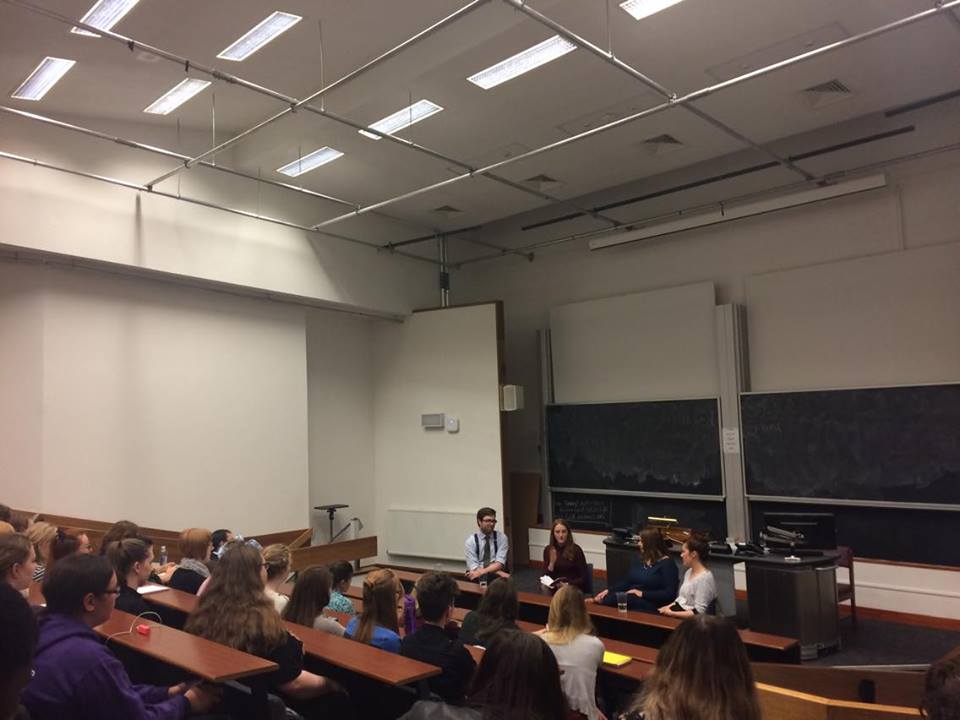The London Book Fair is overwhelming, to say the least. It’s full of scary business people making, what I assume are, lucrative business deals with other scary business people. If you’re a student (or just a normal person with insecurities) it can be intimidating, especially if you’re a first-time attendee. Here are my top five tips for staying sane at LBF. Or, you know, as sane as any student can be.
1. Have a game plan. Look at the full list of talks and seminars beforehand and decide which ones you want to attend. See which publishers will be there and decide whose stands you want to visit. Gather your bearings before you get there. Make a list of where you need to be and when you need to be there. Save yourself the anxiety and plan ahead.
2. Divide and conquer. If you’re going with friends, don’t be afraid to split up. There are a multitude of interesting seminars at LBF and a lot of overlap. Unless you have a time-turner, you won’t be able to catch all the ones on your list. Instead, talk to friends to see if they’re attending any seminars you wanted to go to but can’t make and vice versa and ask if you can swap notes afterwards.
3. Know that people can be mean. There are people who will tell you that this is untrue to make you feel better, but I’m here to tell you that those people are liars. The very first stand we walked up to was a big five publisher and the Editorial Assistants manning the booth were dismissive and unkind. While we didn’t expect royal treatment, we were sort of hoping for basic human decency. This experience made us want to cry and also turned us off networking for the rest of the day. I hope it never happens to you, but know that it’s a possibility.
4. Know that people can be nice, too. For every mean person, there are at least five nice people.* You won’t find them if you don’t keep networking. The next day, we dusted ourselves off and mustered up the courage to talk to some other publishers. It went infinitely better and we had only good experiences. Networking is still the worst, but it’s less terrible when people are nice. Cherish the nice people!
5. The best place to network is after seminars. If you’re looking for the least painful place to network, look no further than seminars. Usually, speakers hang around afterwards to talk. It’s pretty easy to start (“Hey, I’m so and so and I just wanted to let you know that I really enjoyed…”) and the benefits are many. If you’re shy and don’t want to ask questions during the Q&A part of the seminar, this is your chance to do it. The few precious business cards I got weren’t actually from networking with publishers at their booths, but from talking to people after seminars.
There’s also the obvious stuff: wear comfy clothes/shoes, buy your lunch from the Tesco across the street, walk a block to avoid paying the ridiculous coffee prices in the convention hall, etc. Use your common sense. LBF is a good introduction to the publishing business world, I think (learn to time manage, people are nice/mean/somewhere in between, coffee is expensive, the future is terrifying, books are wonderful). As a student, my best advice is to not worry too much. You’re not there to make some lucrative business deal, you likely won’t land your dream job, and you won’t meet JK Rowling. However, LBF is a great place to learn about the publishing industry and the people in it. Get some ideas. Take it all in. This time, you’re along for the ride. One year, who knows? You might be driving.
*This statistic is entirely made up, but I hope it’s true.

